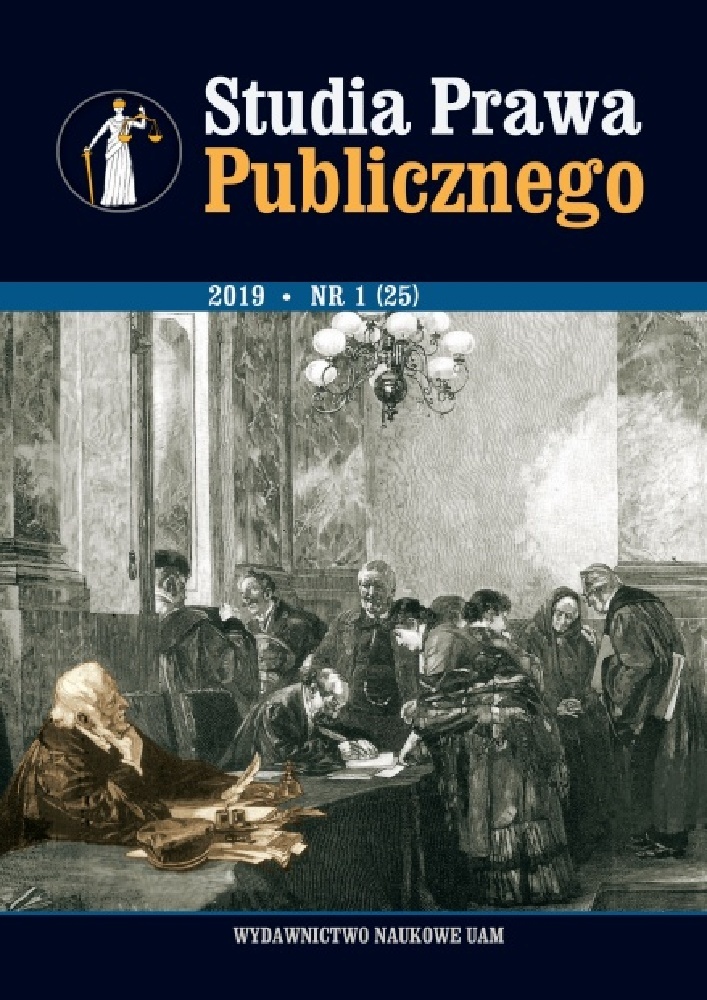Abstract
Activation and grassroots initiative of inhabitants are components of social change affecting local development. It is here that ideas materialise through the actions of individuals. It is assumed that development always exists in an active relation to social and cultural change, involving human, financial, environmental and infrastructural resources. It includes primarily community interactions of individuals in the process of activation for the local environment. The study assumed the hypothesis that activation and grass-roots initiative have a significant impact on local development of auxiliary units. The management of local affairs is based on the assumption that inhabitants of a certain area constitute a community aware of their needs and objectives, able to manage their own affairs independently. Activation and development of the community is defined as a collective undertaking, which requires, among other things, emotional commitment and effort of residents. It is a process that follows the steps of planned operation which involves preparing the action programme, establishing the aim, and setting ways to its implementation. At the same time there must be determined a method which will allow to achieve the intended effectiveness of the undertaking. Comprehensive understanding of activation and grassroots initiative indicates the role of development planning, strategy, and the importance of citizen participation in building a better future for their own socio-cultural environment. Activation within the meaning of citizen activation is associated with the search for independence and identification with the community and place as a “little homeland.”
References
Boć J., Autonomia gminna w Belgii, „Samorząd Terytorialny” 1992, nr 3.
Dolnicki B., Ustawa o samorządzie gminnym. Komentarz, Warszawa 2016.
Gołębiowska A., Europeanization of administrative law and public administration in Poland, w: Problemy i uwarunkowania samorządności terytorialnej, pod red. I. Kłóska, Bielsko-Biała 2015.
Jakubowska U., Przywództwo polityczne, w: Podstawy psychologii politycznej, pod red. K. Skarżyńska Poznań 2002.
Kantowicz E., Elementy teorii i praktyki pracy socjalnej, Olsztyn 2001.
Kopaliński W., Słownik wyrazów obcych, Warszawa 1985.
Krzemiński I., Społeczeństwo obywatelskie i symbole wspólnoty, Gdańsk 2005.
Kulesza M., Administracyjnoprawne uwarunkowania polityki przestrzennej, Warszawa 1987.
Lewicka M., Mechanizmy aktywności obywatelskiej Polaków. Studia psychologiczne, Warszawa 2004.
Moździeż A., Modernizacja lokalnych środowisk wychowawczych, Olsztyn 1997.
Oyster C., Grupy, Warszawa 2002.
Redelbach A., Wronkowska S., Ziembiński Z., Zarys teorii państwa i prawa, Warszawa 1992.
Siciński A, Style życia w miastach polskich, Warszawa 1988.
Siemiński J.L., Koncepcje rozwoju obszarów wiejskich w procesie transformacji ustrojowej Polski lat dziewięćdziesiątych, w: M. Kozakiewicz, Wieś i rolnictwo w badaniach społeczno-ekonomicznych, Warszawa 1996.
Szczepański M., Krzysztofek K., Zrozumieć rozwój. Od społeczeństw tradycyjnych, do informacyjnych, Katowice 2002.
Taifel H., Turner J., The Social Identity Theory of Intergroup Behavior, Nowy Jork 2004.
Wilczyński Z.T., Aktywizacja i rozwój małych społeczności lokalnych, Warszawa-Wrocław 1973.
Wojcieszke B., Człowiek wśród ludzi. Zarys psychologii społecznej, Warszawa 2002.
Zalewski Z., Psychologia zachowań celowych, Warszawa 1991.
License
Copyright (c) 2019 Danuta Biniasz-Celka

This work is licensed under a Creative Commons Attribution-NonCommercial-NoDerivatives 4.0 International License.

